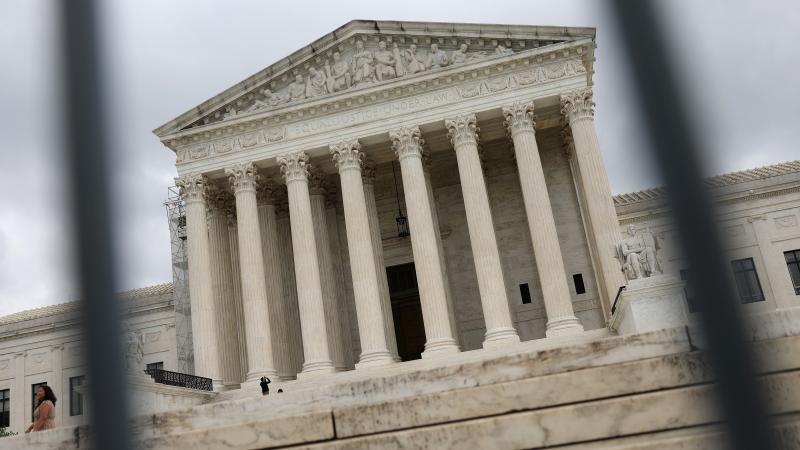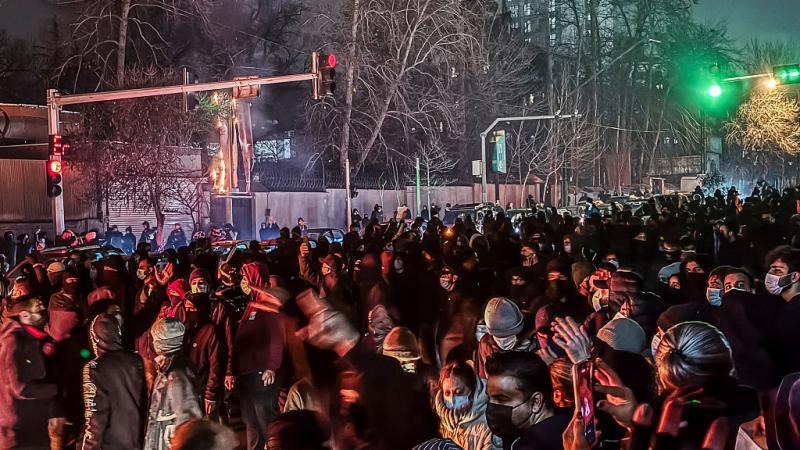Appeals court blocks Trump admin's deportations of Tren de Aragua members using Alien Enemies Act
“TdA was not the kind of organized force or engaged in the kind of actions necessary to constitute an invasion or predatory incursion,” Judge Leslie Southwick wrote
The Fifth Circuit Court of Appeals blocked the Trump administration's deportations of alleged Tren de Aragua members using the Alien Enemies Act of 1798.
The split three-judge panel decision issued on Tuesday said that President Trump had failed to justify claims that the alleged Tren de Aragua members targeted by his declaration had launched an “invasion” or “predatory incursion” against the U.S. at the Venezuelan government's direction, POLITICO reported. Without meeting that standard, Trump cannot use the Alien Enemies Act, according to the panel.
The panel issued an injunction preventing the Trump administration from using the law to deport any alleged members of the Venezuelan gang who are being held in northern Texas.
“TdA was not the kind of organized force or engaged in the kind of actions necessary to constitute an invasion or predatory incursion,” Judge Leslie Southwick, an appointee of George W. Bush, wrote for the panel’s majority.
He also noted in the ruling that Trump could use many other laws to deport the alleged gang members.
“It may well be that these and other peacetime tools are not so quickly utilized as the Alien Enemies Act, but the Government has substantial authority to remove TdA members independent of [the Alien Enemies Act],” Southwick wrote.
Trump invoked the Alien Enemies Act regarding the alleged Tren de Aragua members in March, claiming that the Venezuelan regime of Nicolas Maduro had deployed gang members to the U.S. to destabilize the country. Within hours of the declaration, federal immigration authorities deported 130 people that the administration claimed were Tren de Aragua gang members to a prison in El Salvador.
Attorneys for some of the deported men and others who were targeted but not yet deported sued, claiming they had been wrongly identified and deprived of a chance to contest their deportation.
On April 7, the Supreme Court ruled that the Trump administration hadn't provided adequate due process to the alleged gang members under the Alien Enemies Act, but the justices took no position on whether the invocation of the law was legitimate. Also, the justices concluded that the men challenging the deportation efforts had to file petitions in the districts where they were being held by immigration authorities, preventing many of them from consolidating their challenge in Washington, D.C.
Later that month, the high court issued a middle-of-the-night order that temporarily blocked the administration from conducting another round of deportations. Between the Supreme Court and other lower-court rulings, the administration has been prevented from continuing to use the Alien Enemies Act after the initial round of deportations to El Salvador.
The Trump administration can either appeal the panel’s ruling to the full bench of the appeals court, or take it to the Supreme Court.
Judge Irma Ramirez, a Biden appointee, joined the majority opinion in part. She partially dissented from the ruling, arguing that those challenging Trump’s use of the Alien Enemies Act should have 21 days to take legal action, rather than the seven that the Trump administration says is sufficient.
Judge Andrew Oldham, a Trump appointee, wrote a 131-page dissent, arguing that his colleagues were disrespecting Trump’s authority.
“Today the majority holds that President Trump is just an ordinary civil litigant. His declaration of a predatory incursion is not conclusive. Far from it,” Oldham wrote. “Rather, President Trump must plead sufficient facts — as if he were some run-of-the-mill plaintiff in a breach-of-contract case — to convince a federal judge that he is entitled to relief.”
“That contravenes over 200 years of legal precedent. And it transmogrifies the least-dangerous branch into robed crusaders who get to playact as multitudinous Commanders in Chief,” he continued.














